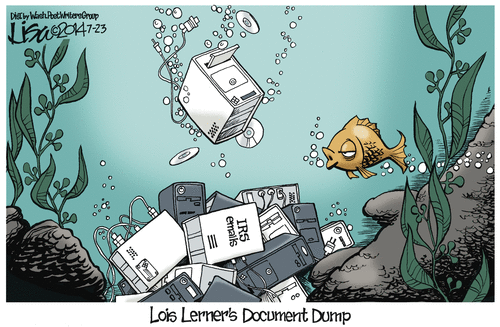QUOTE OF THE DAY
Crain’s: Illinois venture funding flirting with $1 billion mark
Illinois venture funding could approach $1 billion this year, reaching its highest level since the dot-com boom if activity continues at its current pace, says a PricewaterhouseCoopers LLP executive.
Twenty-five companies received $185 million in the second quarter, according to the MoneyTree survey compiled by PricewaterhouseCoopers and the National Venture Capital Association. A year ago, 26 companies raised just $56 million.
Built in Chicago: Illinois should join the crowdfunding revolution
There are few things so American as going all in on a business of your own creation – pouring your heart, soul and bank account into an idea you believe in.
But even entrepreneurs can run into problems raising investment dollars. And that’s where the rest of us can lend a helping hand. Or, in this case, a helping kick.
An investment revolution is sweeping across the United States, inspired by online crowdfunding platforms like Kickstarter. The crowdfunding revolution is the future of local, sustainable, conscientious investing.
Illinois Observer: Quinn Oks Illinois Charter School Lottery, Financial Disclosure
Governor Pat Quinn yesterday signed legislation to install a lottery in Illinois charter school student selection and require more financial disclosure.
“Every child deserves access to a good school,” Quinn said. “With this new law, the public will now have more information and more say in how charter schools operate and spend public funds.”
The legislation, House Bill 3232, sponsored by State Rep. Chris Welch (D-Hillside) and State SenatorJacqueline Collins (D-Chicago), aims to improve transparency and accountability in Illinois’ charter schools, Quinn says.
Coming to New York as an idealistic, wide-eyed upstart can be dangerous. Just ask Lyft, which announced it was launching its ride-sharing service in the city earlier this month, only to be greeted by a regulatory roadblock. San Francisco–based Lyft hoped to bring its pink-mustachioed cars and quirky driver rituals (passengers often sit shotgun; driver fist-bumps are a common greeting) to the land of Ubers and yellow cabs. But TLC rules require drivers to obey licensing rules, which clashed with Lyft’s peer-to-peer model. After weeks of hand-wringing and courtroom drama — including threats of fining Lyft drivers up to $2,000 and confiscating their cars — Lyft finally hammered out an agreement with regulators, agreeing to stop giving rides (for now) in Buffalo and Rochester while following the TLC’s licensing rules in the city. We spoke to Lyft co-founder and CEO John Zimmer about the clash, and what comes next.
Did you expect so much backlash?
We knew that this would be challenging. The Department of Financial Services reached out a few weeks ago. We met with them, and we thought the meeting went very well. But then, when we tried to reach back out, we weren’t hearing anything. We were informed that we were under investigation by the Attorney General a few weeks prior [to the scheduled launch date].
The American: How Risky Is It to Be Uninsured?
In a recent survey, 48 percent of uninsured respondents did not plan on looking for information on the health insurance exchanges set up under the Affordable Care Act, or had not heard about them. Are uninsured people ignorant? Or might the poll reflect a well-reasoned choice? What are the actual risks associated with being uninsured?
Lack of coverage may increase the odds of early death and slightly reduce everyday health status. Yet, at most, one year of being uninsured yields a loss of life expectancy of 16 healthy days of life(roughly equivalent to experiencing the foot problems of a typical 75-year-old).
Progressives claim that Obamacare will save lives because being uninsured purportedly increases mortality risk1 from 25 percent to 40 percent. But such statistics are based on cherry-picked evidence. Two recent studies show that the impact of being uninsured on mortality risk is not statistically significant, and there is a great deal of uncertainty in estimates tying being uninsured to higher mortality risk, as shown in the figure below.
The Washington Post: How big cities that restrict new housing harm the economy
For the last couple of years, San Francisco has been erupting with periodic protests aimed, rather imprecisely, at a nexus of grievances related to gentrification, affordable housing, transportation, the tech industry, newcomers to the city, its changing skyline and Silicon Valley to the south. The city is screaming, although at what its protestors seem a little confused.
“In my view, the whole debate here misses the point,” says Enrico Moretti, an economist at the nearby University of California at Berkeley. “People aremarching against Google buses when they should be marching for more housing permits.”
At the root of San Francisco’s tension is a mismatch of supply and demand: Affluent workers have been flocking to the area for its tech jobs, but as the number of jobs in the region has grown, the number of housing units to accommodate people taking them hasn’t remotely kept pace. As a result, rents are going up. Low-income residents are pushed out. Landlords who see more lucrative opportunity in condo conversions have ramped up evictions.
In These Times: Retirees Get Cross-Checked by Stadium Subsidies
As states and cities grapple with budget shortfalls, many are betting big on an unproven formula: Slash public employee pension benefits and public services while diverting the savings into lucrative subsidies for professional sports teams.
Detroit this week became the most prominent example of this trend. Officials in the financially devastated city announced that their plan to slash public workers’ pension benefits will move forward. On the same day, the billionaire owners of the Detroit Red Wings, the Ilitch family, unveiled details of an already approved taxpayer-financed stadium for the professional hockey team.
Many Detroit retirees now face big cuts to their previously negotiated retirement benefits. At the same time, the public is on the hook for $283 million toward the new stadium.
Huffington Post: Who Should Decide? States’ Rights, Local Authority and the Future of the Internet
“[W]ithout power and independence, a town may contain good subjects, but it can have no active citizens.” That was the conclusion of Alexis de Tocqueville after touring a youthful American Republic in the early 1830s, as recorded in his classicDemocracy in America. Today we are engaged in a renewed debate about the authority of governments closest to the people.
On July 16, by a vote of 223-200, the House of Representatives voted to strip the Federal Communications Commission (FCC) of the authority to allow communities the right to determine their broadband futures. Republicans voted 221-4 in favor.
In a letter to FCC Chairman Tom Wheeler, 60 Republicans insisted that the federal government shouldn’t interfere with the 20 state laws that either prohibit or severely inhibit municipally owned broadband networks. “Without any doubt, state governments across the country understand and are more attentive to the needs of the American people than unelected federal bureaucrats in Washington, D.C.,” they wrote. A similar letter, signed by 11 Republican senators, asserted, “States are much closer to their citizens and can meet their needs better than an unelected bureaucracy in Washington, D.C. … State political leaders are accountable to the voters who elect them….”
CARTOON OF THE DAY

